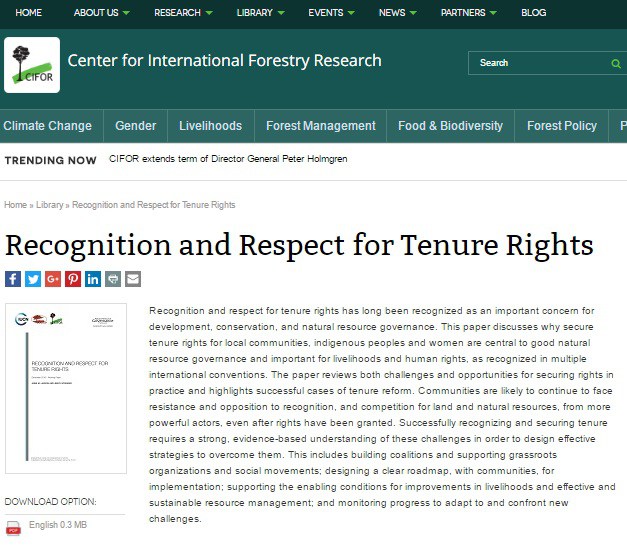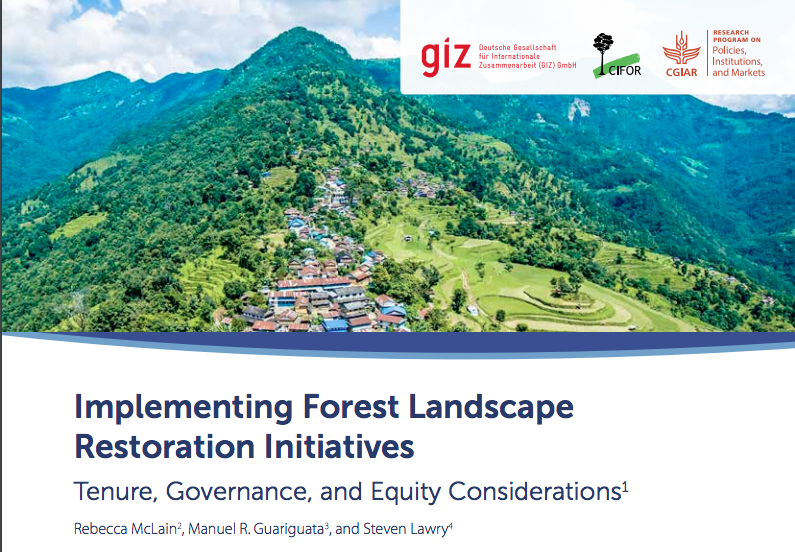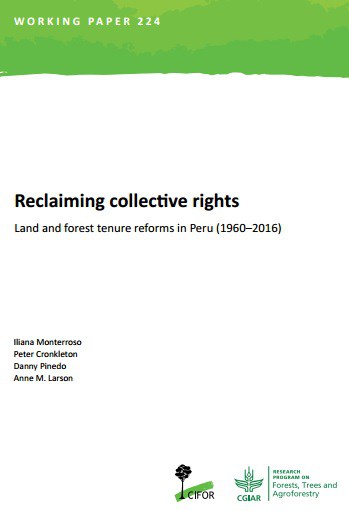Focal point
Location
The Center for International Forestry Research (CIFOR) is a non-profit, scientific facility that conducts research on the most pressing challenges of forest and landscapes management around the world. With our global, multidisciplinary approach, we aim to improve human well-being, protect the environment, and increase equity. To do so, we help policymakers, practitioners and communities make decisions based on solid science about how they use and manage their forests and landscapes.
Capacity building, collaboration and partnerships are essential to finding and implementing innovative solutions to the challenges that the globe faces. We are proud to work with local and international partners. We are a member of the CGIAR Consortium and lead the CGIAR Research Program on Forests, Trees and Agroforestry.
Our headquarters are in Bogor, Indonesia. We have offices in 8 countries across Asia, Latin America and Africa, and we work in more than 30 countries. Contact us for more information.
Resources
Displaying 76 - 80 of 808Recognition and Respect for Tenure Rights
Recognition and respect for tenure rights has long been recognized as an important concern for development, conservation, and natural resource governance. This paper discusses why secure tenure rights for local communities, indigenous peoples and women are central to good natural resource governance and important for livelihoods and human rights, as recognized in multiple international conventions. The paper reviews both challenges and opportunities for securing rights in practice and highlights successful cases of tenure reform.
Implementing Forest Landscape Restoration Initiatives
Forest landscape restoration (FLR) initiatives are being launched over much of the global South. These initiatives seek to restore ecological functions and associated ecosystem goods and services while improving social outcomes (Mansourian and Vallauri 2014). The scale of these initiatives is such that large geographic areas as well as large numbers of people will be affected in the countries that choose to participate in them.
Will CO2 Emissions from Drained Tropical Peatlands Decline Over Time? Links Between Soil Organic Matter Quality, Nutrients, and C Mineralization Rates
Total and heterotrophic soil respiration in a swamp forest and oil palm plantations on peat in Central Kalimantan, Indonesia
Heterotrophic respiration is a major component of the soil C balance however we critically lack understanding of its variation upon conversion of peat swamp forests in tropical areas. Our research focused on a primary peat swamp forest and two oil palm plantations aged 1 (OP2012) and 6 years (OP2007). Total and heterotrophic soil respiration were monitored over 13 months in paired control and trenched plots. Spatial variability was taken into account by differentiating hummocks from hollows in the forest; close to palm from far from palm positions in the plantations.
Reclaiming collective rights Land and forest tenure reforms in Peru (1960–2016)
Peru has formalized property rights for 1,200 indigenous communities in the Amazon. These titled indigenous lands cover over 11 million hectares and represent approximately 17% of the national forest area. Progress has been possible due to multiple reforms that recognized indigenous rights to collective lands, a process characterized by complex and protracted conflicts among competing interests, shifting government priorities and continued resistance by indigenous people to contest efforts that undercut their interests.






